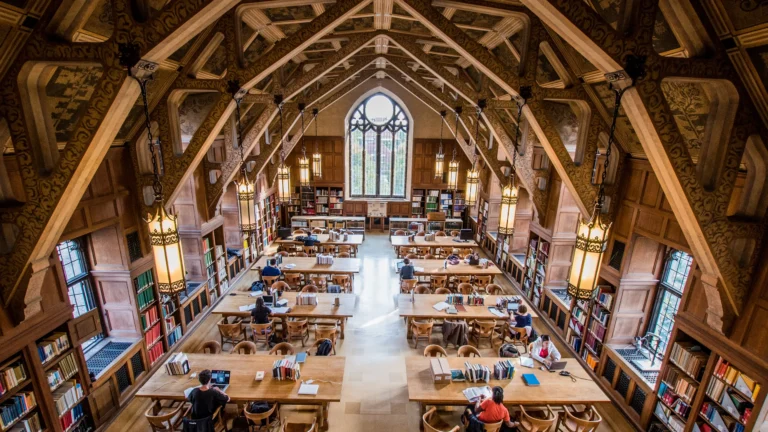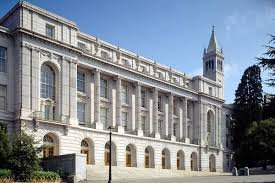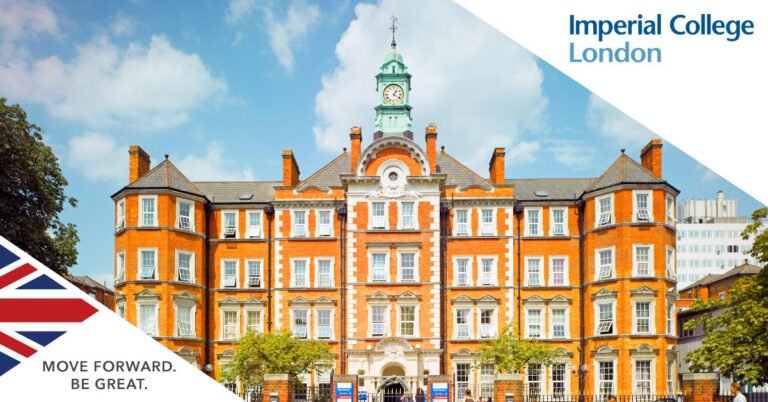University of Washington
Washington University in St. Louis, often shortened to WashU or WUSTL, is a prestigious private research university located in St. Louis, Missouri. Founded in 1853, it boasts a long history of academic excellence and is consistently ranked among the top universities in the world. Here’s a closer look at WashU:
Academic Reputation and Rankings:
- WashU holds a distinguished place globally. In the 2024 QS World University Rankings, it sits at #=68, while within the US, it claimed the #17 spot in the 2022 US College Rankings by Times Higher Education (THE). This indicates exceptional academic rigor across various disciplines.
- WashU offers over 1,500 courses and 90+ fields of study, catering to a diverse student body with a strong emphasis on undergraduate education.
Research Powerhouse:
- WashU is classified as an “R1: Doctoral Universities – Very high research activity” institution. This signifies a deep commitment to groundbreaking research endeavors. The National Science Foundation ranked WashU 25th among US academic institutions for research and development expenditures in 2021.
- WashU faculty and students are actively engaged in pushing the boundaries of knowledge across various fields, with notable contributions in medicine, engineering, and social sciences.
Vibrant Campus Life:
- WashU fosters a thriving campus environment for its roughly 16,550 students. The university comprises eight undergraduate, graduate, and professional schools, providing a plethora of academic and extracurricular opportunities.
- The energetic atmosphere is enriched by a diverse student body, with representation from all 50 states and over 110 countries. This fosters a global perspective and a rich cultural exchange.
Additional Points of Interest:
- WashU has a beautiful campus with a mix of historic and modern architecture. The iconic Brookings Hall, a Richardsonian Romanesque building, is a prominent landmark.
- WashU is known for its strong alumni network. Notable alumni include T.S. Eliot, the renowned poet, and Judy Woodruff, the veteran broadcast journalist.
To delve deeper into Washington University in St. Louis, you can explore their official website (https://wustl.edu/) for detailed information on academics, admissions, financial aid, and student life.
History of University of Washington
The University of Washington: A Legacy of Growth and Innovation
The University of Washington (UW), established in 1861 as the Territorial University of Washington, boasts a rich history intertwined with the development of the Pacific Northwest. Here’s a glimpse into its fascinating past:
Early Beginnings (1861-1890s):
- Founded on November 4, 1861, in a fledgling Seattle with a population of just 250, UW faced initial challenges. The university closed three times due to financial constraints and low enrollment.
- Despite these hurdles, UW persevered and awarded its first bachelor’s degree in science to Clara A. McCarty in 1876.
- The university’s location on a 703-acre plot, donated by territorial legislator Edmund S. Meany, proved to be a wise decision. This land, situated on a rise overlooking Seattle, would become the university’s permanent home.
Growth and Recognition (1890s-1940s):
- The late 19th and early 20th centuries witnessed a period of significant growth for UW. The student body expanded, and new programs were established, including engineering, medicine, and forestry.
- The university gained national recognition for its contributions to research, particularly in fields like fisheries and forestry, reflecting the region’s unique environmental focus.
- The construction of iconic buildings like Suzzallo Library (1926) and the Drumheller Fountain (1929) solidified the university’s growing stature and architectural beauty.
World Wars and Social Change (1940s-1970s):
- During World War II, UW played a vital role in the war effort, conducting research and training personnel.
- The postwar years brought a surge in student enrollment due to the G.I. Bill, leading to further campus expansion and infrastructure development.
- The 1960s and 1970s witnessed a period of social activism on campus, with students advocating for civil rights and educational reforms.
Continued Expansion and Excellence (1980s-Present):
- UW has steadily grown in size and reputation, attracting top scholars and students. It’s now a major research university with a global impact.
- The establishment of branch campuses in Tacoma and Bothell has broadened UW’s reach and educational offerings.
- The university continues to be a leader in various research domains, including medicine, oceanography, and computer science.
UW’s Legacy:
The University of Washington stands as a testament to the vision and dedication of its founders and generations of students, faculty, and staff. It has played a pivotal role in shaping the intellectual and cultural landscape of the Pacific Northwest and continues to be a driving force for innovation and progress.






